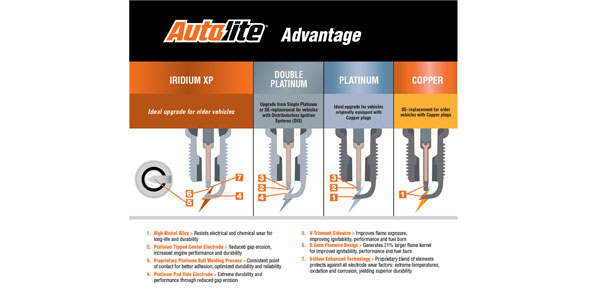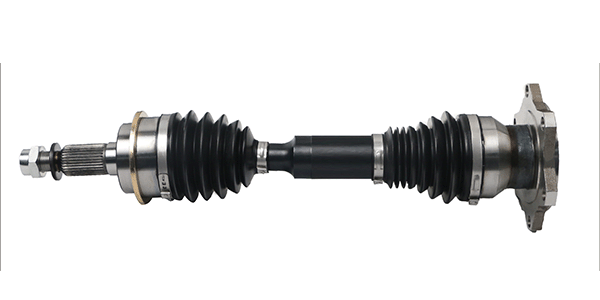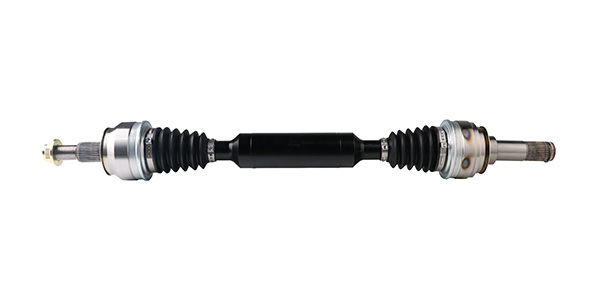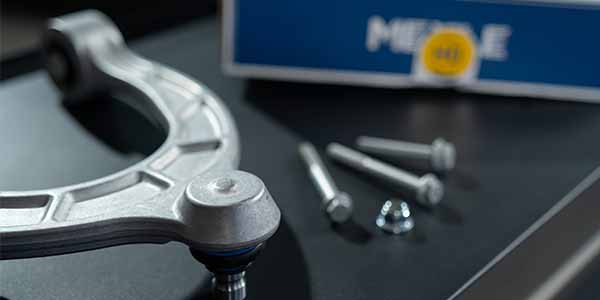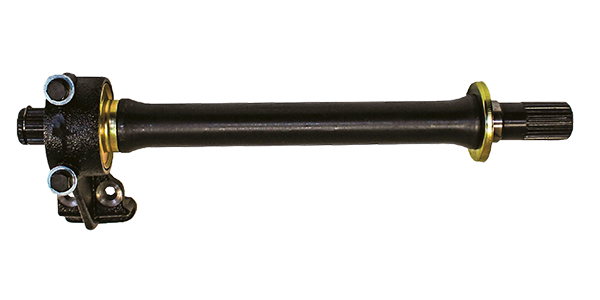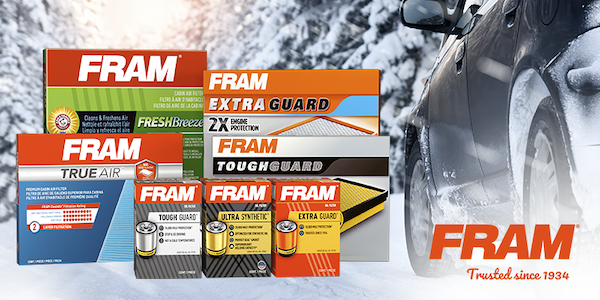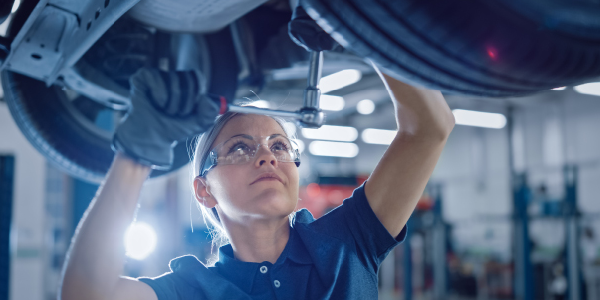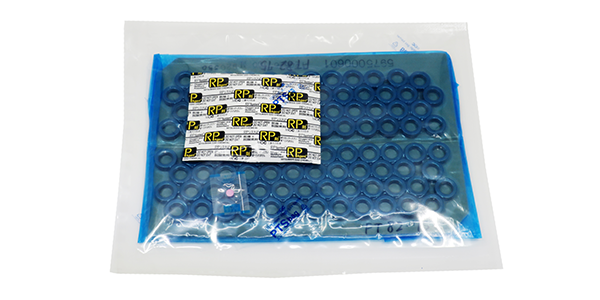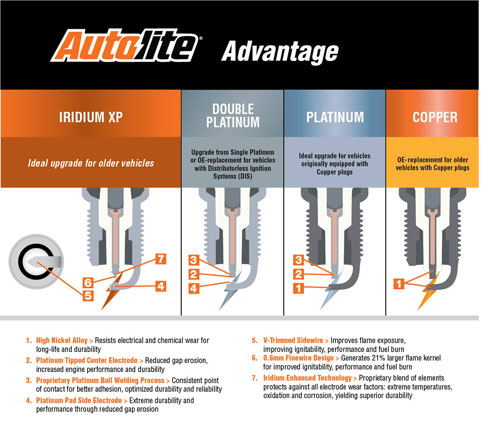
Design and engineering are part of the equation for a successful spark plug, but meeting OE specifications can only push performance so far. The makeup, or metallurgy, of the plug’s conductive material can be the difference maker for mileage, service life, fuel efficiency and fouling resistance.
Why is Metallurgy Important?
It’s a fact that noble metals are more resistant to corrosion, metals machined into a fine wire produce more focused ignition and precious metals are better at resisting fouling. The specific metallurgies, and their benefits, include:
Copper – This is an extremely conductive metal, not just with voltage, but it is also thermally conductive. Thermal conductivity is especially important when trying to dissipate heat, a constant threat under the hood. Copper plugs are usually a good fit with conventional ignition systems.
Platinum – A noble metal, platinum is used in higher voltage applications because of its high level of durability. With strong heat resistance, this metal has a high melting point, and it generally features a smaller electrode than its copper counterparts. In addition, platinum plugs lend themselves to more complete combustion and improved fuel efficiency over copper.
Iridium – Iridium is part of the platinum family, but it has a much higher melting point. It is a very durable metal that lasts longer against the demanding conditions in the combustion chamber. Despite this resistance to heat, iridium is fragile. Normally machined into a fine wire (under 1 mm) application, iridium ignition is more focused, but it can fracture if it is not gapped properly.
Copper has long been an industry standard, though newer model vehicles may require a minimum metallurgy of iridium. It is always best practice to check OE specifications when selecting the most applicable aftermarket spark plugs.
If performance is your priority, consistent ignition and quicker acceleration makes iridium the way to go. These plugs also provide a greater value, as they can handle a greater mileage load than copper or platinum.
This article is sponsored by Autolite, a company with decades of dedication to spark plugs, are the specialists in all things ignition. Learn more about your options at https://www.autolite.com.

